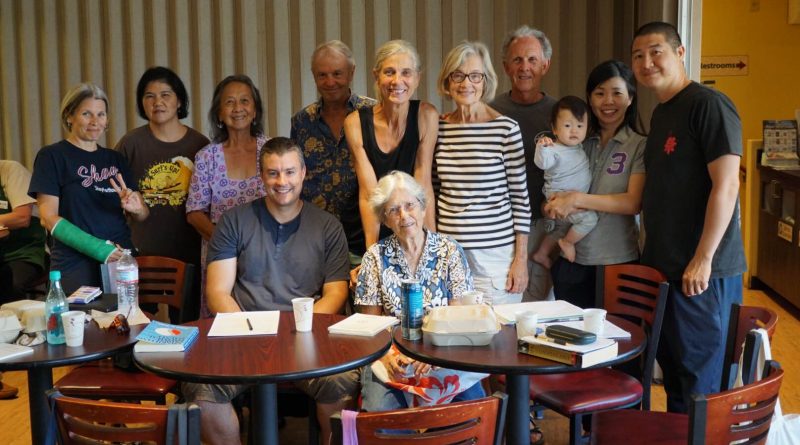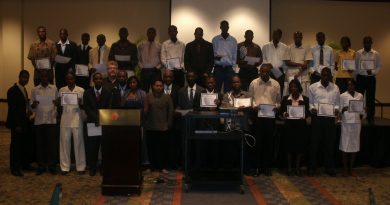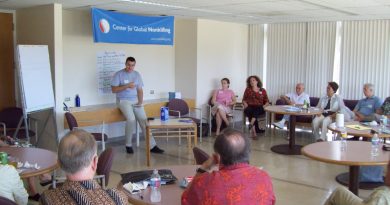CGNK Supports UN University Hawaii Regional Center of Expertise
Over the past year CGNK has supported the establishment of a United Nations University acknowledged Hawaii Regional Center of Expertise on Education for Sustainable Development focused on Peace, Nonviolence and Nonkilling. The vision of the project is that RCE Hawai‛i would be a catalyst for advancing research, training and policy that integrates the values of peaceful killing-free societies as an integral part of Education for Sustainable Development, building on the historical and cultural legacy of the Hawaiian Islands. The project was submitted for consideration by CGNK Director Joám Evans Pim and Associate Professor Jeannie Lum from College of Education, University of Hawai‘i, and Peace Day Hawai‘i Committee, on behalf of a variety of organizations and individuals that supported the proposal, including Maui Peace Action, United Nations Association of Hawaii, Zhou En-lai Peace Institute, Pacific Justice and Reconciliation Center, Center for Indigenous Leadership in Peacemaking, Toda Institute for Peace and Policy Research, Peace Day Hawai‘i, Gandhi International Institute for Peace, etc.
After holding meetings and conversations across the Islands, the proposal was submitted in September for consideration by The Ubuntu Committee of Peers for the RCEs that held its eleventh meeting on 21-22 November 2016 in Yogyakarta, Indonesia and reviewed 21 applications from all over the world for official acknowledgement. The Committee forwarded RCE candidate Hawai’i a number of comments and suggestions toward the next round and these will be worked out during the following months for a final submission in June 2017. RCE Hawai‘i will seek to develop a unique approach to ESD combining aloha (peace), pono (righteous justice) and aloha ʻaina (love for the land) in the spirit of the newly adopted United Nations Sustainable Development Goals that bring together ESD and education for peace, justice, nonviolence, and the promotion of killing-free societies.
The UN and Hawai‛i as Place for Peace
It is almost forgotten how in 1944 Franklin D. Roosevelt proposed Hawai‘i as a possible location for the future United Nations headquarters, a suggestion that was developed by the State Department under Secretary of State Cordell Hull. The proposal was backed by Hawai‘i Governor Ingram M. Stainback and the Hawaiian Senate, that adopted a resolution in 1945 (Herald Harper, November 23, 1945). Even after the decision was finally made to locate the headquarters in New York, Roosevelt believed that the UN Security Council should have two regular meeting places, one being in the Azores in the middle of the Atlantic and the other on one of the islands of the Hawaiian archipelago in the middle of the Pacific. The name of O‘ahu, the island of the capital city, is frequently translated as “The Gathering Island” or “The Meeting Place”. Although there is no firm linguistic basis for this, the idea of Honolulu as a place where people from around the world get together is presently a reality.
Hawai‘i’s traditions of peace and sustainability (aloha ʻaina) are an important part of the Islands’ heritage and represent a unique approach to understanding Education for Sustainable Development. Queen Lili‘uokalani’s opposition to armed resistance during the overthrow of the Hawaiian Kingdom and her peaceful struggle during the following decades seeded the basis for the Hawaiian nonviolent environmental, anti-war and Hawaiian sovereignty movement that reemerged during the sixties. An early example in the 1970s was the movement to protect Kaho‘olawe from Navy bombing exercises seeking environmental protection, preservation of sacred natural sites and stopping further militarization. The movement in Kaho‘olawe was able to stop the bombing and won the partial clean up and return of the island, which was declared a nature reserve in 1993.
More recently, on April 18th, 2007, Representative Jon Riki Karamatsu introduced House Bill 345 that was signed by the Governor as Act 23, making Hawai‘i the first state in the United States to establish “Peace Day”, a non-holiday holiday, an annual event to acknowledge the United Nations International Declaration of Peace and Nonviolence throughout the world on September 21st each year.




